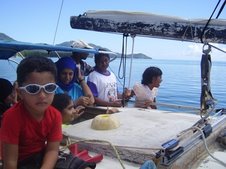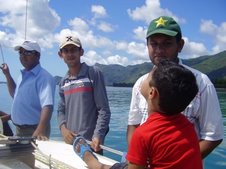Tuesday, 5th June, Brussels
Your Excellencies, Distinguished Participants & Colleagues,
It is indeed a pleasure to be in Brussels this evening.
We have watched with interest from Colombo your engagement in particular, as a development partner and a friend in promoting peace.
I preface my formal presentation with a few a contextual facts relating to my requested presentation .Since Independence from Britain, Sri Lanka has contended with the challenges of governance of for a multi-ethnic society with competing demands of majority and minority interests, together with accompanying pressures of a plural society with significant development goals. Close upon three decades of civil strife, regional disparities in economic dividends for growth and peace with the impact of the Tsunami of 2004, has left the country with deficits in the realm of human security. A deficit which has resulted in conflict affected regions becoming isolated from the development framework, a national yearning for a return to normalcy and to manage expectations from Peace.
Dividends from peace
The dividends from the Ceasefire Agreement signed in 2002, resulted in approximately 100,000 families being resettled in their original habitat, 55% of mine clearance, totalling 35,832, 825 square metres of land, externally funded projects, estimated at Rs. 43,620.43 million , domestic fund utilization for restoration work in the North-East from 2002 – 2006 estimated at Rs. 3,056.00 million. Agriculture land was brought back into active production, rice production increased by about 90,000 metric tons per year and water supplies restored to approximately 20,000 families. People across the country began recovering their lives, economies and futures. Collectively we renewed our faith in peace as a means to erase conflict and to development. The onward progress has now stopped due to the resurgence in conflict.
Absence of peace
War derogates human rights and our country has not been immune. The Ceasefire Agreement was said to have frozen war. It has melted now, garrisoning in places people with terrifying consequences. A focus on human rights must have a focus on human lives. Accompanying losses to life, forced displacement, involuntary disappearances, reports of abductions, hostage taking for ransom , conscription, fear of attacks which disrupt day to life and stringent measures adopted to secure cities and urban life run counter to civil liberties of sections of our populace, which in turn accentuates existing cleavages amongst stakeholders and communities.
Humanitarianism
Reaching the vast expanse of displaced persons has posed harsh challenges to humanitarian agencies, with new regulations and procedures on access, a natural evolution and companion in times of conflict. Humanitarian agencies are neutral – in their principles and partisan to people in need, in their activities. It has resulted in some agencies, employees and families coping with direct assaults, intimidation and threats. Neutrality has come under fire. Though it remains as such and as long as there are people in need with access to affected people at the forefront of concern.
Amidst these challenges, humanitarianisms must persist to reach those who cannot run anymore, those who do not know where to run, those who cannot offer their children sufficient protection and those children who wonder why they are scared everyday of their lives. Equally our actions are called to account by all. A call which needs to be met with the highest of standards expected of us.
While we may not be able to bring about miracles, the humanitarian community in Sri Lanka has overcome obstacles of significant size and nature, and this strength should be a telling sign of the potential to reverse the devastating circumstances for many people.
In seeking progress we must catalogue our successes. We have seen progress amidst the challenges. A few reminders: engagement of multilateral and bilateral agencies and their investments, willingness of humanitarian action to weather conflict, development of frameworks for relief, rehabilitation and reconciliation, scintillating draftsmanship of a proposal for final settlement of conflict and constitutional change, engagement and dialogue by all stakeholders on challenges to human security, civic voices, calling to account derogation from human rights within Sri Lanka and realization of the limits of impunity given global trends.
Call for peace and hope
The search for human security away from conflict and indignity is global and ceaseless. The demands of human security include a balanced view of tragedies that are the result of terrible omissions as well as dreadful commissions.
In short a celebration of life as opposed to a memoriam for life. We must make it that much harder to justify destruction as a means to conquer one another and make dialogue, conciliation and accommodation a means to find solutions too many competing and justifiable claims from the peoples of our country.
Human rights will realize in large measure with the ebb of conflict and a focus on development. Such a common quest requires the enterprise of adversaries who are stakeholders of today, it is for the interlocutors and investors to bring out about this commonality of vision which together may assist us all to justifiably feel one day that we did what we had to when we had to.




No comments:
Post a Comment